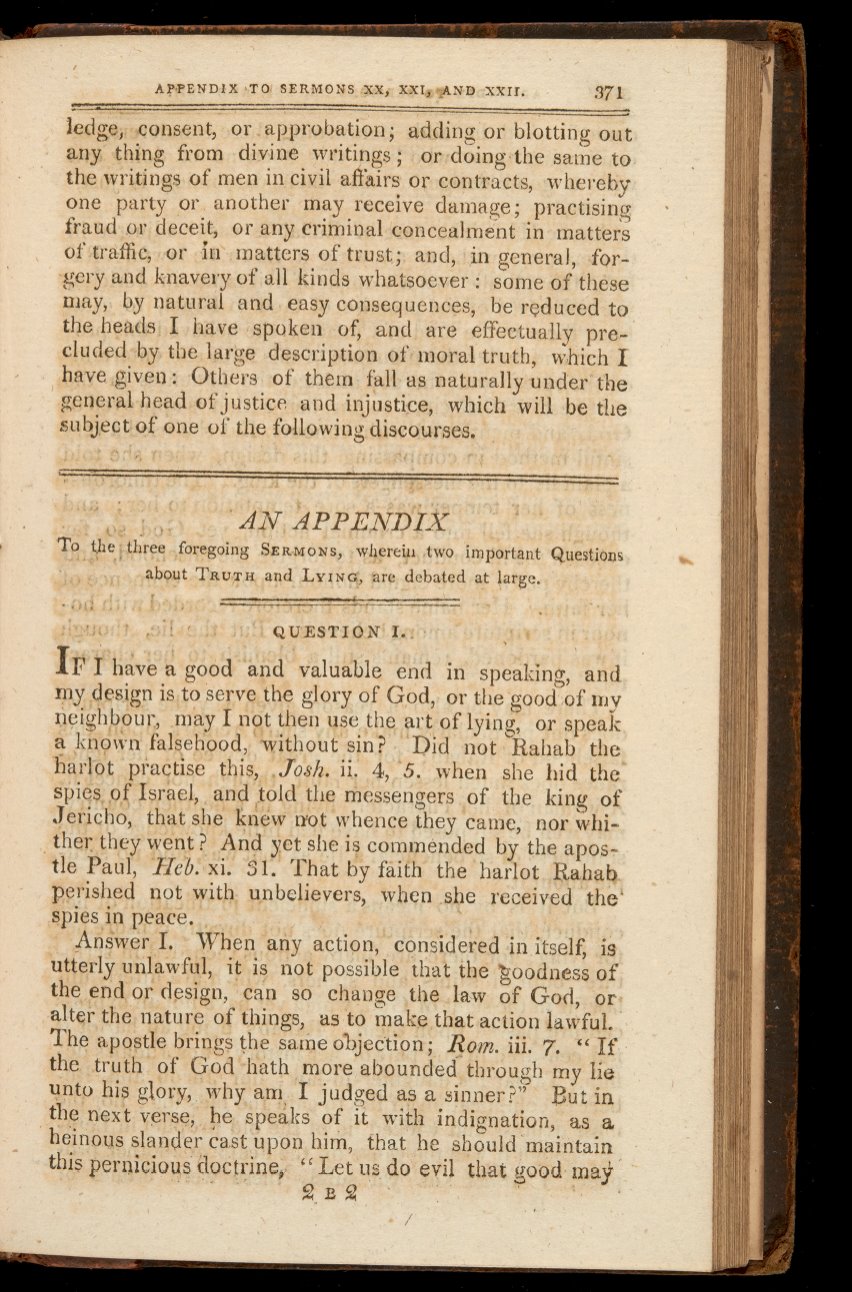

APPENDIX
TO SERMONS XX,
XXI.y.kAND
-XXII.
371
ledge,
consent, or
.
approbation;
adding or blotting
out
any
thing
from
divine writings
;
or
doing the same
to
the
writings
of
men in civil affairs
or contracts,
whereby
one party
or
another
may
receive
damage; practising
fraud or
deceit,
or
any criminal
concealment
in
matters
of
traffic,
or in
matters
of trust;
and,
in general,
,for-
gery and knavery
of
all
kinds whatsoever
:
some
of
thèse
may,
by
natural
and
easy
consequences,
be
reduced to
the heads
I
have
spoken
of,
and are
effectually
pre-
cluded
by
the
large description
of
moral
truth,
which
I
have
given: Others
of
them
fall
as
naturally
under"
the
general head
of justice
and
injustice, which
will be
the
subject
of
one
of
the following discourses.
AN
APPENDIX
To the three
foregoing
SERMONS,
wherein
two
important
Questions
about
TRUTH
and
LYING,
are debated at large.
QUESTION
I.
.1111
have a good
and
valuable énd
in speaking,
and
my design
is
to serve the glory
of
God,
or
the
good
;of
my
neighbour,
may
I
not
then
use
the
art
of
lying,
or
speak
a known falsehood,
without
sin?
Did not Rahab the
harlot
practise
this,
Josh.
ii.
4,
5.
when
she
hid the
spies
of
Israel, and told the
messengers
of
the king
of
Jericho, that
she
knew
not
whence they came,
nor
whi-
ther
they went
?
And
yet
she
is
commended
by
the
apos-
tle Paul,
lIeb.
xi.
31.
That
by
faith
the
harlot Rahab
perished
not
with
unbelievers, when
she
received
the
spies in
peace.
Answer
I.
When
any action, considered in
itself,
is
utterly
unlawful,
it
is
not
possible
that
the goodness
of
the end or
design,
can
so
change the
law
of
God,
or
alter
the
nature of
things, as
to make
that
action
lawful.
The
apostle
brings the same
objection;
Rom.
iii. 7.
If
the
truth
of God hath
more
abounded
through
my
lie
unto
his glory, why
am
I
judged
as
a
sinner
?"
Rut in
the next verse,
he
speaks
of
it with indignation,
as
a
heinous
slander cast upon
him,
that
he
should'maintain
this
pernicious doctrine,
`
Let
us
do evil
that
good
may
2B2

















